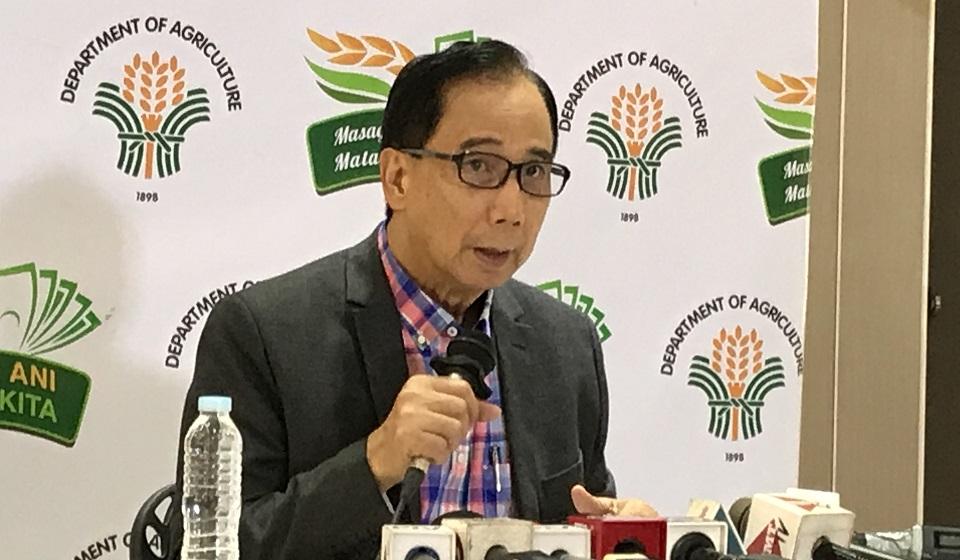Dar blames traders for high pork prices: Talagang sobra ang kita nila

Agriculture Secretary William Dar on Tuesday issued a stern warning against unscrupulous traders and wholesalers who “unreasonably” jack up prices of basic food items, particularly pork, that hefty fines await them.
“We recently activated a sub-task group on economic intelligence under the IATF task group on food security (TGFS) that will focus on those who manipulate supply and prices of agricultural products at the expense of consumers,” Dar said.
The Agriculture chief issued the warning against “opportunistic” traders and wholesalers who are taking advantage of the tight supply of hogs. If found guilty, erring traders and wholesalers would be penalized with fine up to P100 million.
“We admit that we have a limited population of hogs in Central Luzon due to the African Swine Fever or ASF since the early part of 2019, but traders and wholesalers are causing the spike in the prices of pork. They are making a large profit margin of more than P200 per kilo, between the farmgate price of live hogs and retail price of pork in public markets. Talagang sobra ang kita nila," Dar said.
"All evidence points against them, as production cost of hogs ranges only from P105 to P150 per kilo, and the resulting farmgate price of up to P200 per kilo, while market retail prices go as high P400 per kilo. That's a huge P200-profit margin," he said.
Dar said according to hog raisers in Batangas, where farmgate prices range from P180 to P200 per kilo, a P70 to P80 margin between farmgate and market price is acceptable.
To prevent further spike in the retail prices of pork and chicken, Dar said the DA is recommending that President Rodrigo Roa Duterte impose a price freeze on said food items, at P270 per kilo for kasim and pigue, P300 per kilo for liempo, and P160 per kilo for chicken meat.
Meanwhile, Dar said the DA is seeking help from the Philippine Competition Commission (PCC) to investigate traders and wholesalers suspected of manipulating supply and prices of basic food items.
The DA is also partnering with the departments of interior and local government (DILG), trade and industry (DTI), and justice (DOJ), the Philippine National Police (PNP), and National Bureau of Investigation (NBI) — who are members of the sub-task group on economic intelligence under the IATF task group on food security — to investigate, apprehend and prosecute profiteers and price manipulators.
Dar also warned individuals and entities who are floating the idea of a food shortage, stressing that “they have to substantiate such claims or face possible investigation for colluding with traders in order to cause panic among consumers.
“There is no food crisis,” Dar said.
To stabilize food supply and prices in Metro Manila, particularly of pork, chicken, and vegetables, he said the DA is implementing immediate and medium-term strategies in partnership with farmers cooperatives and associations (FCAs), and hog raisers' and poultry groups.
Dar said he directed the DA's Bantay Presyo Task Force, in partnership with the Metro Manila Development (MMDA) and Local Price Coordinating Councils (LLPCs), to clamp down on unscrupulous traders and wholesalers
Also, he instructed all DA regional field offices (RFOs) to increase the transport of pork, chicken and vegetables to Metro Manila markets, as well as Kadiwa outlets.
The DA will continue to coordinate with hog raisers in the Visayas and Mindanao to ship live hogs and "pork-in-a-box" to Metro Manila via 2GO and Oceanic shipping lines.
“The DA-Bureau of Animal Industry is now discussing with producers on slaughtering, packaging and blast freezing of pork products, which could be sold at targeted areas around Metro Manila,” Dar said, adding that the shipping cost of the 'pork-in-a-box' will be subsidized by the DA's Bureau of Fisheries and Aquatic Resources (BFAR).
To augment current pork supply, imported pork will start arriving in February from ASF-free countries, totalling 54,000 metric tons (MT), under the minimum access volume (MAV) mechanism, that imposes an in-quota tariff of 30 percent (%). Imports beyond 54,000 MT are levied 40% tariff.
There is also a plan to reduce the tariff within and outside MAV.
The DA through the Bureau of Animal Industry (BAI) is also implementing a renewed, stronger and united war against ASF, dubbed as 'Bantay ASF sa Barangay' (BABay ASF) program.
This actively involves local government units (LGUs), the private sector, veterinary groups, and state universities and colleges (SUCs) notably CLSU and UPLB, in disease detection, control, and prevention.
The DA is initially allotting P1 billion for the "BABay ASF" program.
Alongside, the DA is implementing a P500-million hog repopulation program in ASF-free areas in Luzon, Visayas and Mindanao. —KBK, GMA News




